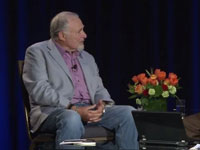The Anatomy of Everyday Hatred
It’s hard to outdo Medea for raw hatred. Thrown over by her husband Jason for another woman, the mythic sorceress takes revenge by poisoning her rival and, just for good measure, her rival’s father. Then, just to make sure that Jason comprehends the enormity of her wrath, she murders their two sons in cold blood.
Now that’s hate—and probably a lot of other emotions as well, including jealousy and humiliation and anger and disgust. Scientists and poets have long been fascinated by intense, negative emotions such as Medea’s, but surprisingly there is no overarching theory of hatred. Who hates whom, and why? What do we mean when we say, I hate? And what do we do about it?
Two psychological scientists have decided that the best way to approach hatred is to ask average people. What are our ordinary, common sense definitions of this extreme emotion? To plumb our “naïve psychologies” of hate, Katherine Aumer of Hawai’i Pacific University and Elaine Hatfield of the University of Hawaii at Manoa put together an elaborate survey comprising these basic unanswered questions. Here is a summary of their most notable findings, followed by some intriguing tidbits, as described by Aumer at the convention of the Association for Psychological Science, in San Francisco this week:
We mostly hate people we know, and in fact rarely direct that intense emotion at anyone we’re unacquainted with. The main reasons we hate people include betrayal—including infidelity but also broken promises of other sorts—and intense aversion to others’ personalities. The best way to deal with hatred seems to be communication—either with the hated person directly, or with a friend or higher power. Finally, age and gender do influence hatred—how we experience the emotion and whom we target. Here’s some more detail:
- People first experience hate at about age 12, roughly their age during middle school. The age range is wide for initiation into hatred, from a perplexing six months to 40 years of age.
- Interestingly, when asked what they mean by hate, people rely on other emotions: extreme dislike, extreme disgust, and extreme anger.
- Ex-husbands are among the most hated, especially for women between 28 and 32 years of age. Also in that elite company are co-workers. Far more women than men name “a friend” as the most hated person in their lives.
- We hate those we love—or loved. People expressed the most ill will toward those they are closest to on a daily basis—acquaintances, friends, family, exes. Even within the family, the “nearest and dearest” arouse the most hatred—fathers especially, followed by mothers, in-laws, sibs. Curiously, very few hate their own significant others—just 1 in 100—but far more hate a friend’s boyfriend or girlfriend.
- The good news is that hatred is uncommon. Over a lifetime, people say they hate about five people on average. Men are more likely to report feeling hate as they get older, peaking in the late 30s and then declining until the late 50s. But most of us don’t experience hate on a regular basis. Indeed, most people say they never feel hatred at all.
- Intriguingly, despite the orgies of torture and murder we witness every day, people rarely mention political concerns when asked about their own animosities. Hate, it seems, is intensely personal—as the mythic Medea would testify
Follow Wray Herbert’s reporting on the 26th annual convention of the Association for Psychological Science in the Huffington Post and on Twitter at @wrayherbert.





Comments
Well, curiously, I find myself here because I’m trying to understand why I hate our current president and political system. I’ve never worried about feeling hatred before, because I rarely feel that way and if I do it is for a short time only – until I talk to myself about it. But I feel hatred toward this government almost daily because of what I perceive to be the bad things they have done. I’m supposed to feel compassion toward them to get over this hatred????
APS regularly opens certain online articles for discussion on our website. Effective February 2021, you must be a logged-in APS member to post comments. By posting a comment, you agree to our Community Guidelines and the display of your profile information, including your name and affiliation. Any opinions, findings, conclusions, or recommendations present in article comments are those of the writers and do not necessarily reflect the views of APS or the article’s author. For more information, please see our Community Guidelines.
Please login with your APS account to comment.